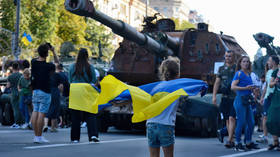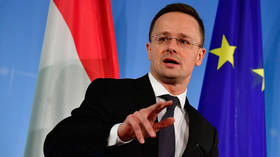Only 15% of Kiev preschoolers ‘actively speak’ Ukrainian – NGO

Only some 15% of preschoolers in Kiev are “actively using” Ukrainian, according to a survey conducted by Spilnomova, an NGO with the declared goal of “studying and changing the language situation” in the country.
The results of the survey were revealed by Spilnomova’s founder, Andrey Kovalyov, in an interview with the outlet Texty.org.ua, published on Tuesday. Around 20% of preschoolers turned out not to speak Ukrainian at all, using Russian in daily life instead.
The rest of the preschoolers are using a mix of Russian and Ukrainian, the survey found. Kovalyov did not discuss the exact methodology used to arrive at the findings.
The language situation appears to vary from one kindergarten to another, depending on whether the institution is making an active Ukraininzation effort, as well as on the efforts of the parents. But since the beginning of the conflict between Russia and Ukraine, more parents have started using Ukrainian while speaking to their children, Kovalyov said.
“There are kindergartens that constantly remind parents about this. And they have a higher percentage of children who use Ukrainian. But, unfortunately, such institutions are a minority. For the most part, kindergartens simply do not have any policy on this topic. They usually do nothing,” he stated.
The situation with use of Ukrainian language is no better – and, apparently, even worse – among teenagers, according to the activist. While the city’s schools are teaching children in Ukrainian, the language policy appears to have little to no effect on actual real-life use, Kovalyov said.
That is, we have a very peculiar situation. On the one hand, we see preschoolers in the Russian language environment, on the other hand, no changes are visible in the school environment.
“For example, only 10% of memes used by Kiev teenagers are in Ukrainian, 90% are in Russian or English. Here the question arises: can a child be creative with a language that is not dominant for him?”
Despite efforts at promoting the official tongue, Ukrainian schools at present only enable children to learn it “passively,” effectively like any other language taught there, according to Kovalyov. Given that the language issue is “highly politicized” in the country, education officials appear to be afraid of actually doing something about it, opting to wait until it “somehow resolves itself,” he said.













